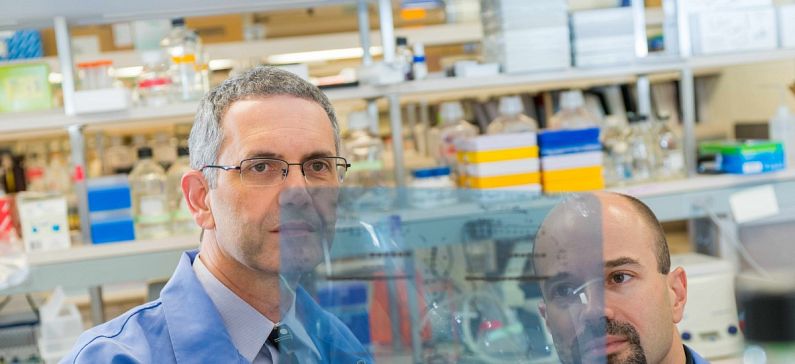Τhe study’s senior investigator is Dr Panos Anastasiadis, chair of the department of cancer biology at the
Mayo Clinic‘s campus in Florida. Lead authors are Panos Anastasiadis, Ph.D., and Antonis Kourtidis, Ph.D., a research associate in Dr. Anastasiadis’ lab.
The study, which although in its early stages has been hailed by cancer charities as “crucial”, works by focusing on the PLEKHA7 protein that clumps healthy cells together. The researchers found that when the usual sequence of cell regulation is disrupted, cancerous cells quickly occur and multiply out of control, but by adding mircoRNAs molecules scientists were able to prevent cancer.
The research represents “an unexpected new biology that provides the code, the software for turning off cancer,” according to the Mr Anastasiadis, chair of the department of cancer biology at the Mayo Clinic’s campus in Florida.
“The study brings together two so-far unrelated research fields — cell-to-cell adhesion and miRNA biology — to resolve a long-standing problem about the role of adhesion proteins in cell behavior that was baffling scientists,” says the study’s lead author Antonis Kourtidis, Ph.D., a research associate in Dr. Anastasiadis’ lab. “Most significantly, it uncovers a new strategy for cancer therapy,” he adds.
However, the tests have only been carried out in a test tube so it remains unclear whether the results can be replicated in people and if so, it is thought patients would still require chemotherapy.
“By administering the affected microRNAs in cancer cells to restore their normal levels, we should be able to re-establish the brakes and restore normal cell function. Initial experiments in some aggressive types of cancer are indeed very promising.” Dr Anastasiadis told the BBC.
The laboratory of Panagiotis (Panos) Z. Anastasiadis, Ph.D., is interested in elucidating the role of cadherin adhesion receptors, polarity proteins and Rho GTPases in human cancer. In particular, the lab is investigating adhesion-mediated signaling events that regulate cell growth, suppress cell motility and invasiveness, and promote the reorganization of the actin cytoskeleton.

